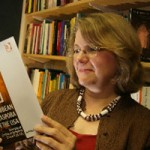“If we want to discover what [wo]man amounts to, we can only find it in what [wo]men are: and what [wo]men are, above all other things, is various. It is in understanding that variousness – its range, its nature, its basis, and its implications – that we shall come to construct a concept of human nature that, more than a statistical shadow, and less than a primitivists dream, has both substance and truth.” (Geertz, The Interpretation of Cultures, 1973:52)
This quotation from Clifford Geertz, one of the canonical figures in anthropology, succinctly sums up what anthropology tries to do. Anthropology is essentially a comparative study of socio-cultural behaviour and attitudes, and is one of the most complex yet fundamental tools in the scholar of religions’ toolbox.
Some scholars make a career out of being an anthropologist of religion, others employ the techniques of ethnographic fieldwork in combination with other approaches and methodologies. And, of course, even those scholars who are attempting to be solely anthropologists of religion cannot divorce religion from the host of other contextual factors within which they believe they have found it. This week, David (and, briefly, Chris) are joined by Dr Bettina Schmidt of the University of Wales, Trinity St David, who gives an insightful personal account of the complex task of conducting anthropological fieldwork, with examples from a variety of contexts.
You can also download this interview, and subscribe to receive our weekly podcast, on  The Insider/Outsider Problem, and/or reading Katie Aston’s response Insider and Outsider – An Anthropological Perspective. Anthropology is a complex beast, and something which can only truly be learned in the field. As our friend Damon Zacharias Lycourinos has said:
The Insider/Outsider Problem, and/or reading Katie Aston’s response Insider and Outsider – An Anthropological Perspective. Anthropology is a complex beast, and something which can only truly be learned in the field. As our friend Damon Zacharias Lycourinos has said:
“Anthropology is the art and science of taking paradigms of ethnography from your supervisor, taking them into the field, realising that they are wrong due to their objectivity, re-shaping and introducing a new school of anthropological theory, and expecting your re-shaped paradigms to be annihilated by your future students.”








